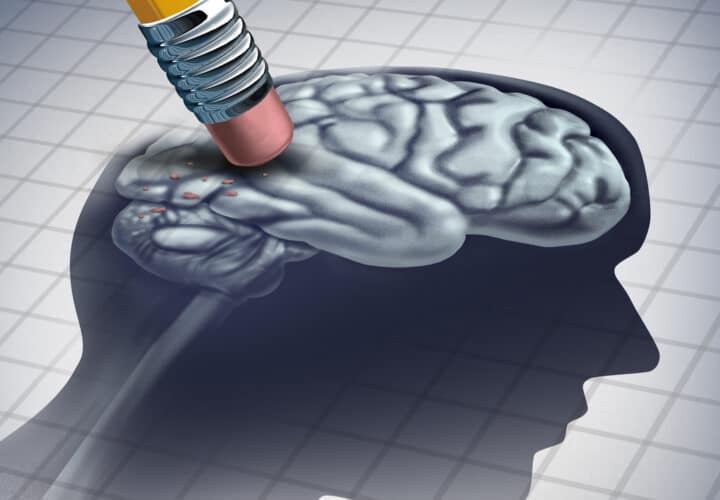Looking for brain fog remedies? Neurological experts offer six ways to speed up recovery from COVID-19’s neurological symptoms.
Memory problems. Trouble focusing. Confusion. Mounting research is showing that, in people of all ages, these cognitive symptoms may come along with a COVID-19 infection — and linger for months afterwards.
Dr. Majid Fotuhi, a Harvard and John Hopkins trained neurologist and neuroscientist and the author of Boost Your Brain, refers to it as brain fog — an all-inclusive nickname for an inability to concentrate, increased absent mindedness, difficulty recalling or retaining information, fatigue, insomnia and changes in mood.
Brain fog isn’t, at this point, considered an official medical diagnosis. But if you’re experiencing the above cognitive symptoms, and they’re getting in the way of your day-to-day life, experts say that there are measures you can take to help alleviate symptoms and clear the haze.
1. Start with the basics: Make sure your diet is brain-healthy.
Good nutrition is a key part of a good mood and good memory, and the benefits go way beyond that: The Mediterranean diet, which consists of vegetables, fruits, whole grains, legumes, fish and of course, extra virgin olive oil, has repeatedly been linked to better brain health, and even lower Alzheimer’s risk.
Leafy greens and flavonoids help too, while cholesterol and high-sugar, high-fat diets are linked to cognitive problems as severe as dementia.
2. Stay hydrated.
According to neuroscientist Kristen Willeumier, author of Biohack Your Brain, chronic dehydration can also negatively impact cognitive performance. “We’re woefully under-hydrated,” she told Being Patient. “If somebody has brain fog, I’ll have them drink at least half their body’s weight in ounces of water. The Institute of Medicine actually recommends drinking 3.7 liters of fluid per day for men and 2.7 liters of fluid per day for women. Something as simple as making sure you get the appropriate amount of water can improve your mental and physical state.”
3. Take your vitamins — but beware the claims of brain health supplements
Can brain health supplements help with COVID brain fog? The short answer: Not necessarily. Many of the supplements that make claims about benefits to brain health have not been studied in credible, large-scale, peer-reviewed trials, and experts say there is simply no trustworthy scientific evidence that they work.
Product labels may claim otherwise, but it should be noted that these labels can’t always be trusted. The supplements market is considered a “Wild West” of products that don’t require an FDA approval before hitting the market. Being Patient has reported story after story about various brain health supplement makers (Neuriva Plus, Prevagen to name a couple) settling false-advertising lawsuits after making scientifically unverified claims about their products’ dubious benefits. That said, there are plenty of vitamins that are unquestionably good for us (when taken as instructed).
Regardless of what diet you follow, supplements like omega-3 fatty acids, Vitamin D, curcumin (turmeric), and others have been shown in various peer-reviewed studies to give the brain a boost, helping to improve things like attention, memory, reasoning, information processing speed and accuracy.
4. Talk to your doctor.
According to Harvard cognitive behavioral neurologist Dr. Andrew Budson, “The first and most important thing to do is to see your doctor and share with them all of the lingering symptoms you are experiencing.”
Talk with your doctor if you’re experiencing brain fog, and don’t forget to mention other neurologic symptoms—these include weakness, numbness or tingling, as well as any loss of smell or taste, as these common COVID symptoms relate to the brain, too, Budson writes for Harvard Health. Also share lingering physical symptoms, which range from abnormal urine or stool to shortness of breath or heart palpitations.
5. After Severe COVID, consider that cognitive check-up
Depending on what you learn from your general practitioner, further cognitive testing may also be appropriate.
Fotuhi recommends that in the case of severe COVID — anyone who was hospitalized for COVID-19 and who experienced any distressing neurological symptoms, even headaches — should undergo a brain MRI to determine if a stroke of any size has occurred. Since this recommendation, new studies have uncovered more about just how serious the impact of “long COVID” can be on cognitive function.
Fotuhi urges survivors of severe COVID infections to get a cognitive evaluation to understand how their mental faculties compare to others in their age group. The recommended score should be around the 50th percentile, he told Being Patient, and anything under the 10th percentile may warrant a trip to the neurologist.
6. Get your brain back in shape.
As the medical director of NeuroGrow Brain Fitness Center, Fotuhi said he has seen up to a 90 percent success rate for concussion patients during his 12-week brain rehabilitation program, which includes brain training, neurofeedback and lifestyle interventions. He is applying these same, multidisciplinary therapeutic approaches to help COVID-19 patients recover lost cognitive capacity.
If you don’t have access to a center like this one, don’t worry: Many of these practices are easy to implement at home. Learning new things, exercising, sleeping well, and working on ways to reduce stress are the primary approaches to treating brain fog — and building better brain health. Following this protocol diligently, he said, could produce results in as little as a month.
According to Fotuhi, whether you have brain fog from the novel coronavirus, the stress of a pandemic, or simply want to take steps to prevent it, being proactive with treatment is key.
“People need to treat brain fog as they would a urinary tract infection or a rash.” he said. “If you have a skin rash, you don’t just sit there and look at it. You have to do something about it.”
Additional reporting by Genevieve Glass





Hello, In am 73,have me/cfs type illness,and have possibly picked up long-covid type infection? I am giving support to someone with dementia.
Thank You Mr Dickens
Hi Robert, thank you for being here. If you’re feeling unwell or worn out in your caregiving journey, it’s important that you ask for help. Here is a great article on how to avoid caregiver burnout that you might be interested in: https://www.beingpatient.com/how-to-avoid-burnout-dementia-caregiving/